The Designer’s Cross-Training Toolkit
Well, it turns out that they are related in a round-about way. The athlete and his coaches went on to explain that training in other sports and physical activities, as well as regular soccer training keep certain parts of the brain active and stimulated, and this in turn improves soccer performance and prevents the brain and body slowing down.
Further Reading on SmashingMag:
- Finding Inspiration in Uncommon Sources: 12 Places to Look
- Offline Inspiration: How To Find It and Get The Most Out Of It
- 50 Incredible Photography Techniques and Photo Tutorials
What Does This Have To Do With Design?
This soccer player got me thinking about my own profession in design and made me analyse the way I deal with life as a designer. I mostly design for web these days and that can mean anything from interface design, banner advertising, as well as branding and logo design. It’s easy to drift into the same old routine for each project especially when work is coming in thick and fast — and when projects tend to overlap.
It turned out I wasn’t spending enough time “designing” away from a computer screen and out of the office. When I use the word “designing”, I don’t just mean putting together wireframes and pushing pixels in Photoshop — I mean actually gathering creative thoughts, images, videos and other forms of inspiration whilst living life.
Collect, Gather and Cross-train
As designers, we have an instinctive desire to collect things, from action figures to postcards to t-shirts and posters — it’s just something we do, right? Taking photos, recording videos, bookmarking web pages, ‘like’-ing and ‘favorite’-ing are all forms of collecting and it’s these things that shape us as designers.
Looking for inspiration can also be treated as a form of cross-training. Taking yourself away from your normal (daily) routine is a useful technique. Since my kids arrived a couple of years ago, we’ve found ourselves watching kids TV and movies as well as reading children’s books. Being exposed to these new forms of entertainment meant seeing a whole new world of animation and illustration and it was fun. Treating yourself to a show or a trip to the cinema to see something you wouldn’t normally watch can also be fun.

Some useful items for a designer’s cross-training toolkit
My brother-in-law took me to a soccer match in Amsterdam recently and I have to admit that when he originally proposed the idea I wasn’t overly excited. I was interested in finding out what it would be like to attend a proper European soccer match and I was promised it would be quite exciting as the teams that were playing were old rivals. I’m glad I went as it was an incredible experience and I found myself getting completely wrapped up with the other fans and cheering on the home side. It’s these kinds of experiences that bring out ideas and inspiration from the best of us.
The point I’m making here is to break away from normal routine. Designers are expected to read particular books, magazines and websites and attend certain conferences. I’m not suggesting we stop doing these things but we should add other things to the recipe too and explore other opportunities.
The Designer’s Toolkit
Let’s think about that soccer player again. He plays soccer and trains mostly in that sport but also cross-trains in yoga and boxing as they help his brain and body stay focused and sharp and prevent him from getting injured. What can we as designers do to accomplish the same thing? Developing skills in other creative areas will help keep you motivated and fresh. Below, I’ve compiled what I think is a good designer’s toolkit for a well-designed cross-training lifestyle:
A DSLR and a Point-and-Shoot
Investing in a good digital SLR and a good point-and-shoot camera with plenty of manual settings can really get the creative juices flowing. Being able to compose a good photo and control the light is not easy but when you start to understand how the camera works you can have a lot of fun taking photos. I’ve included the point-and-shoot camera as it’s not always feasible to carry a DSLR around with you.

A DSLR type camera and a point-and-shoot type camera with plenty of manual settings
Developing a photographer’s mind will condition you to be constantly looking for the perfect shot wherever you are and whatever you’re doing and it will also become your second nature to never leave the house without a camera.
Digital HD Camcorder
Having a camcorder is also a good option though some good DSLR cameras now shoot quite good cinema quality videos as well. You have the same rules about light and composition but have the added element of timing and movement. You will certainly want to start editing the videos you shoot, so learning new softwares such as Adobe Premiere or Final Cut will let you create a masterpiece — you might even want to get into something like Adobe After Effects and create something really special.
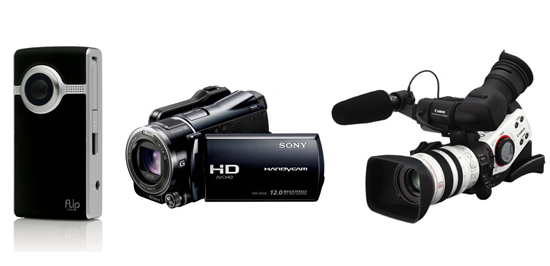
From a simple pocket HD camcorder to a top-of-the-range ‘pro-sumer’ camcorder
Understanding more about cinematography allows you to appreciate the intricacies of those classic movies. It’s not just about the fonts used in the opening credits or the detail in the animation — it’s the timing of a scene, the expressions used and other details in the shots that make certain films memorable and great.
Smartphones
Having a smartphone such as an iPhone or an Android phone can be a really handy way of collecting visuals. I’m always snapping interesting signage, posters and graffiti, etc. Download an app like Evernote or Dropbox and you can sync with an online account to view stuff later on the big screen.
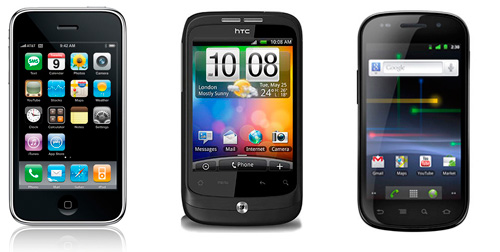
Smartphones from Apple, HTC and Google
There are thousands of apps out there to help you organize your creative lifestyle, so ask around and see what other people are using.
Sketchbook, Pencils, Pens, Markers and an Eraser
Drawing and sketching is great fun. I’m not great at drawing but I have a real desire to get better. Whenever there is an opportunity to sketch, I’ll grab a pen or pencil and get going. Your sketching tools need to be handy all the time, so get yourself a good bag to keep all this stuff in. Investing in some good coloured marker pens will also add a bit life to your web mockups and drawings and will help get your ideas across much better.
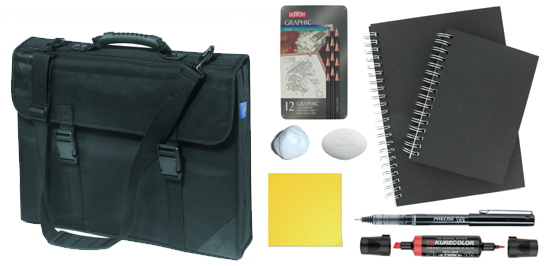
Pens, pencils, marker pens, sketch pads, sticky notes, an eraser and a good bag to keep them all in
Using post-it notes and blutac can help with labelling. Why not sign up for an evening life drawing or comic book drawing course to really boost your skills? Sometimes it’s just nice to not use something digital to create and fall back to pencil and paper. I sat in a bar in New York with an artist just after the terrorist attacks in 2001 and he sketched on the back of a napkin what he saw on that day — it was one of the simplest yet most powerful sketches I’ve ever seen.
Google Maps
When I visit bookshops and news stands, I head for the design section or pick up a web design/creative magazine by default. This isn’t such a bad thing, but how about dropping into your nearest antique or second-hand bookstore and picking up a book or magazine — one you wouldn’t normally look at. I love looking at lifestyle magazines from the 80’s and 90’s and in particular the style of advertising used in them. We can learn a lot from looking back at old styles and techniques used decades before we were born.
It’s also fun to look at old packaging for kids toys and games or electrical items. The font usage, illustration and even printing techniques can offer ideas and inspiration. Open up Google Maps and find out where your nearest Antique or second-hand store is and drop in.
Graphics Tablet
With those re-discovered drawing skills, you’ll no doubt want to apply them to your designs on screen. Using a graphics tablet can add a whole new element to your working practice and making use of pressure and flow features in Photoshop will add detail and life to your designs. Though it’s down the individual, a graphics tablet can give you greater control of image manipulation — especially in Photoshop.
Scrapbook
A scrapbook is a must! Picking up leaflets, collecting magazine adverts and other printed material is a really useful way of gathering inspiration. It’s something you can look back to in years to come and you’ll be glad you kept them. Recognizing design patterns in print and advertising will certainly help you with your future projects.
Conclusion
So to conclude, taking photos, recording videos, drawing and collecting all manner of visual things are all things we can do everyday to keep us stimulated as designers. I’ve found that regularly attending Web and design related conferences help to keep my mind stimulated. Also, listening to people with ideas and thoughts and sharing them in an enthusiastic and passionate way will leave you feeling upbeat and excited about design even more.
We shouldn’t stop here though. Breaking the normal “design” routine can unlock new ideas and thoughts; so instead of dropping into the local for a pint, why not walk an extra block to the workers club and have a pint with the old guys over a game of dominoes.
Skip the freelancers weekly meetup this week and drop into an evening comedy workshop instead, switch radio stations, wear red instead of black, drink tea instead of coffee, buy a different newspaper… you get the idea! Drop in a bit of boxing and yoga and who knows what you could create — more often than not you will find yourself amazed by the innovative ideas you have come up with.
(ik) (vf)


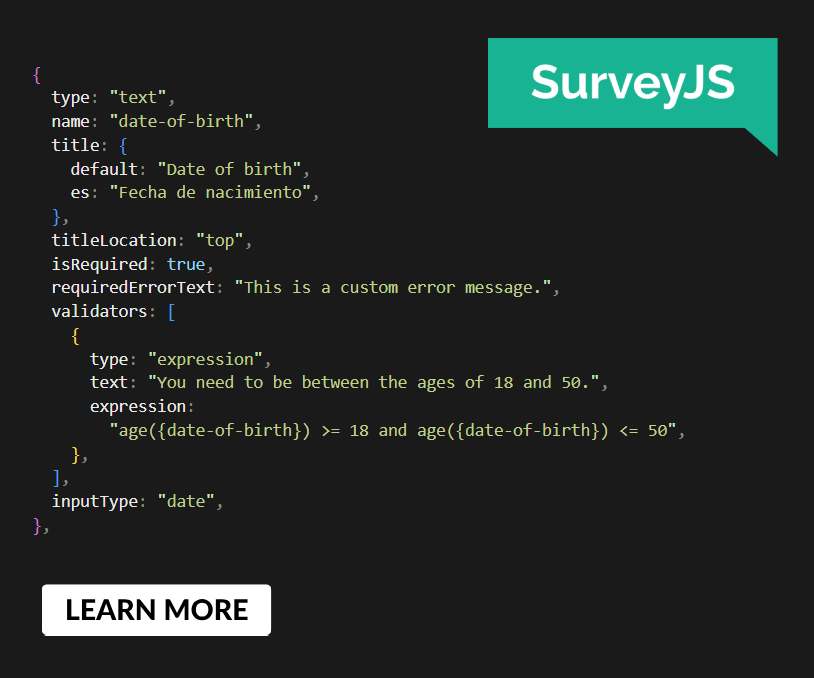 SurveyJS: White-Label Survey Solution for Your JS App
SurveyJS: White-Label Survey Solution for Your JS App


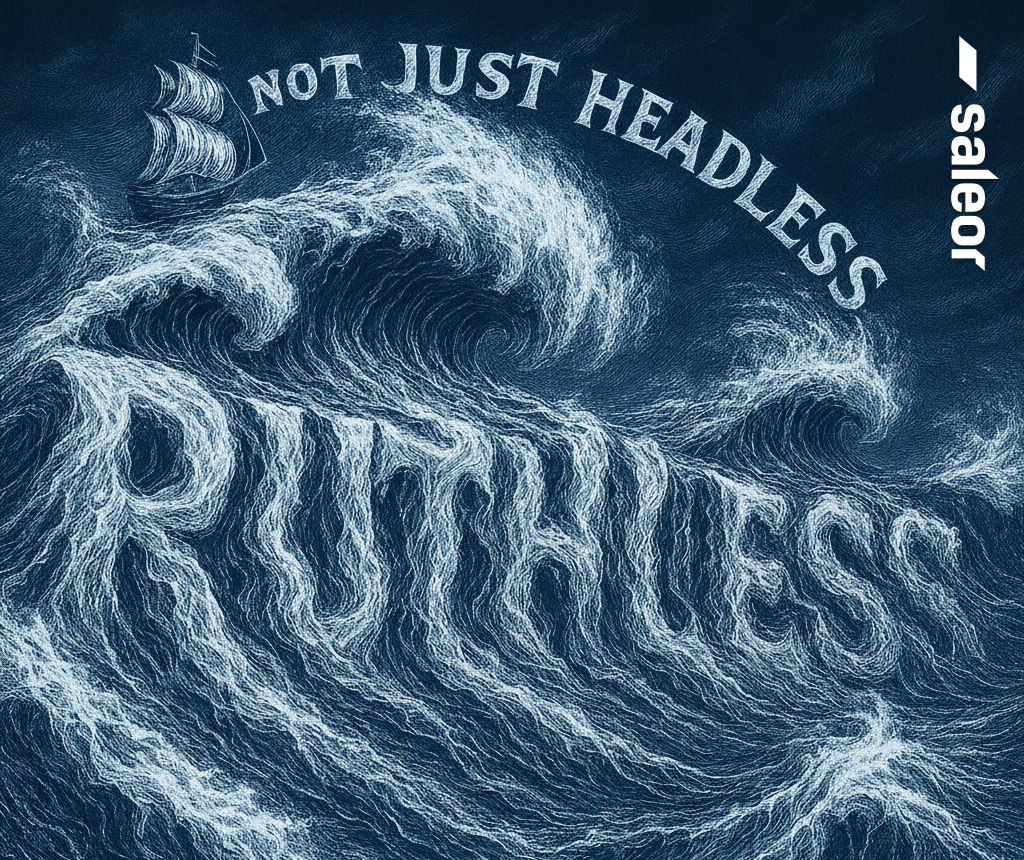 Agent Ready is the new Headless
Agent Ready is the new Headless

